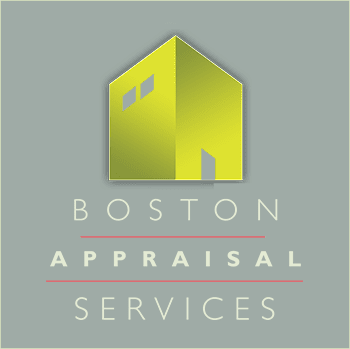What has Been the Impact of COVID-19 on the Real Estate Market?
Categories: Finance, News, Real Estate Tips
Welcome to 2020 with COVID-19, social distancing, self-imposed lockdown, and Zoom meetings. Rioting and protesting aside, I have to say that America has dealt with the lifestyle and work environment change quite well. But as life starts a trek back to a new state of normality, it will do us good to take a look at the real estate market and measure the impact of the Corona virus and how it will affect the market in the future.
COVID-19 Impact on the Mortgage Market
One of the positive results of this global pandemic is the affect it has had on the U.S. mortgage market. On March 15, the Federal Reserve lowered the prime rate to zero in response to the corona virus outbreak. This dropped 30-year mortgage rates to the floor – and we are happy to say that it stayed there. As of June 18, 2020, Freddie Mac reported in their Primary Mortgage Market Survey that 30-year fixed rate mortgages are averaging 3.13%. There are some lenders quoting rates as low as 2.75% for top-tier borrowers. This is the lowest rate in 30 years.
These low rates combined with easing of lockdown restrictions are going to drive a dramatic increase in purchase demand. In fact, activity is up over 20% from a year ago. “I think rate levels will be directly tied to the ability of the economy to recover. If it goes better than expected, rates would rise, and vice versa if things remain sluggish. Either way, the Fed is committed to keeping shorter-term rates lower for longer, and that will help to anchor longer-term rates like mortgages to some extent,” said Matthew Graham, chief operating officer at Mortgage News Daily.
What does this mean for borrowers?
Anyone who is in the position to purchase real estate should act now before the next corona virus wave hits. While mortgage rates may inch down a bit more, it will not be a significant shift, so there is no need to wait for rates to drop. On the other hand, if the economy recovers quicker than expected, we could see Feds bring the rates up a bit to slow demand.
COVID-19 Impact on Buyers and Sellers
These low loan rates are pushing buyers to risk virus exposure in search of better housing. This is good news for sellers who have suffered from a stagnate market during the first quarter of 2020. Compared with May of 2019, existing home sales were down 26.6%. This was the lowest level since July, 2010 and is part of a three-month decline in sales. Much of this drop can be attributed to peaks in the pandemic during March and April. The chief economist for the National Association of Realtors (NAR), Lawrence Yun, predicts that “Home sales will surely rise in the upcoming months with the economy reopening, and could even surpass one-year-ago figures in the second half of the year.”
During the height of the pandemic, new home construction ground to a halt. It is hoped that this will start to soon ramp up again to meet the rising housing demand. Without additional new homes coming into the market, home prices will rise too fast and quickly exceed affordability for first-time home buyers – even with the record-low mortgage rates.
Interestingly, the first wave of the pandemic has not lasted long enough to drive down sales prices and create a buyer’s market. The spring is a relatively slow period during a standard annual real estate season. The NAR reports that median sales prices in May increased 2.3% over last year establishing a median price of $284,600.
What does this mean for buyers?
Low mortgage rates mean you can get significantly more home for a much smaller payment. Now may be a good time to go shopping for a new home – especially before the predicted fall/winter second COVID-19 wave begins.
What does this mean for sellers?
We are not expecting price reductions at this time and experts are predicting an above-active summer of activity. Listings that feature virtual tours will have greater appeal to buyers who are nervous about virus exposure. Due to the increasing demand to work from home, home offices will have increased appeal. Families will appreciate private backyards and play areas rather than close proximity to public parks.
COVID-19 Impact on Investors
There has been less of an impact on the commercial real estate sector due to COVID-19. Cushman and Wakefield summed it up well when they said that “it’s premature to draw strong inferences about the virus’s impact on property markets. The commercial real estate sector is not the stock market. It’s slower moving and the leasing fundamentals don’t swing wildly from day to day.” While we are not seeing an impact on prices, rental rates, or investor returns at this point, there are areas that an investor may want to keep on the lookout.
JLL Capital Markets has recently released their COVID-19 Global Real Estate Implications report. As can be imagined, they stated that there will continue to be a high demand for medical office space, regional manufacturing facilities and associated logistics, along with storage space for companies with lean supply chains and low inventory cover. Office space offering a more flexible layout or private offices will have increased demand. If more businesses endorse a more permanent work-at-house outsourcing solution, there could be a period of office downsizing.
In a recent addition to the Immigration Policy, the new order will restrict J-1 (short-term exchange visas), L1 and H1 Visas. A reduction in international students, the ban on skilled workers and issuance of green-cards will pose short-term risk to the demand of housing created by these people.
What does this mean for investors?
With depressingly low government bond yields, real estate continues to offer good risk-adjusted returns in spite of any COVID-19 risk. JLL advises that based on the low interest rate environment; there is a good case for additional portfolio diversification.
Medical experts are saying that COVID-19 is going to be around for longer than we would like. Dealing with it is going to create a new normal, but the real estate market will survive. In spite of the health ramifications, experts in the real estate industry predict a strong recovery and stable prices.





Leave a Reply
Want to join the discussion?Feel free to contribute!